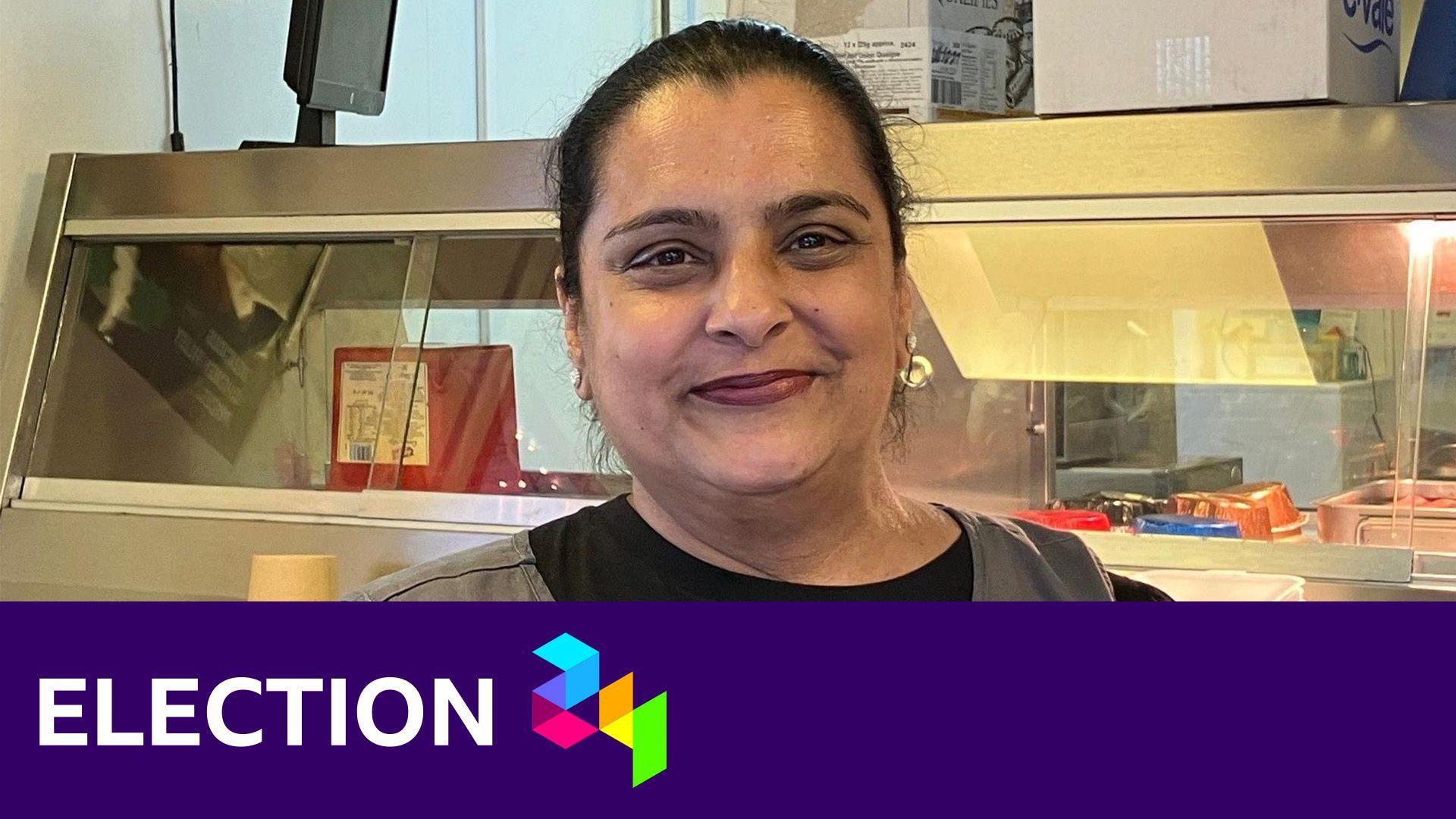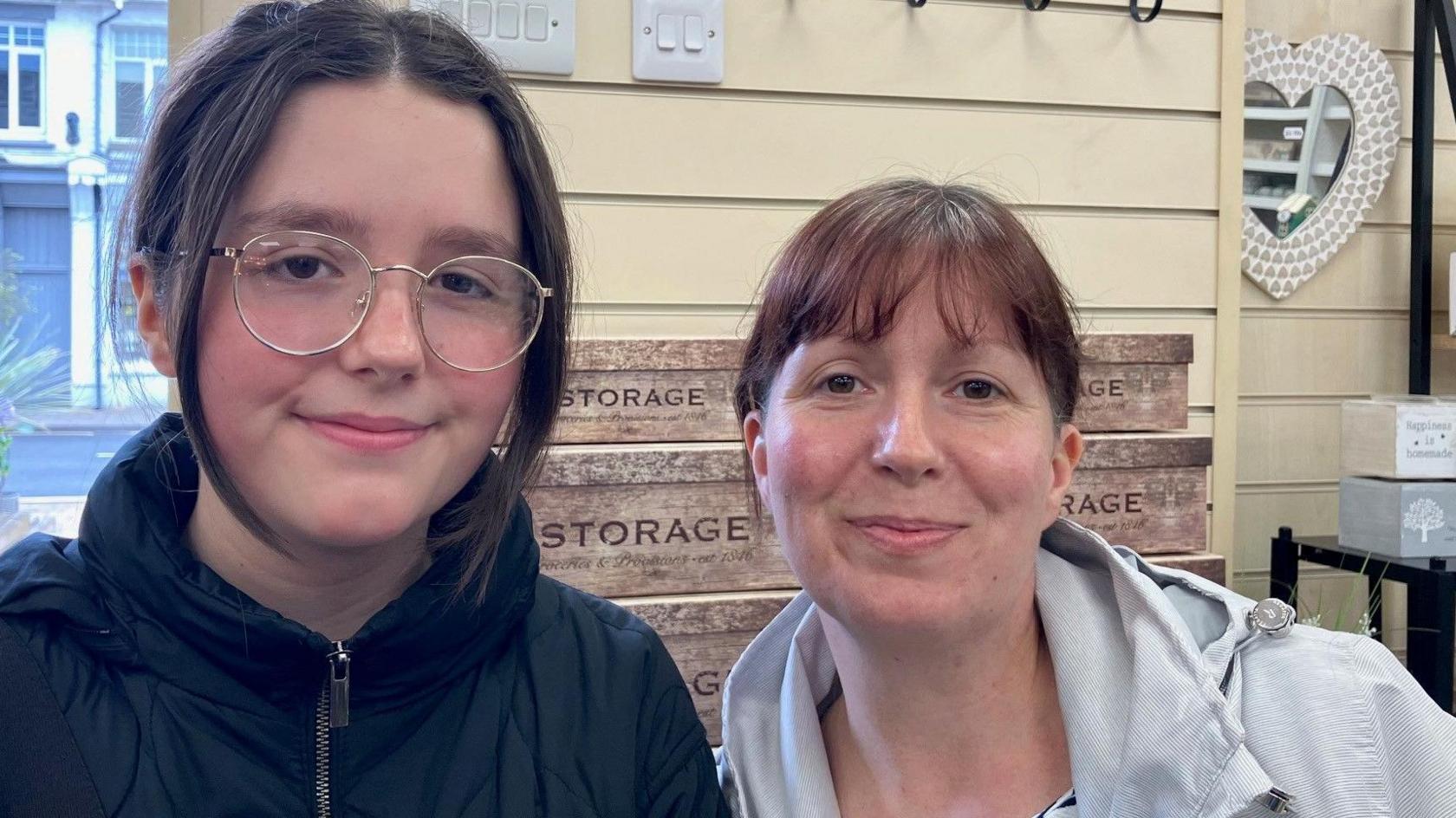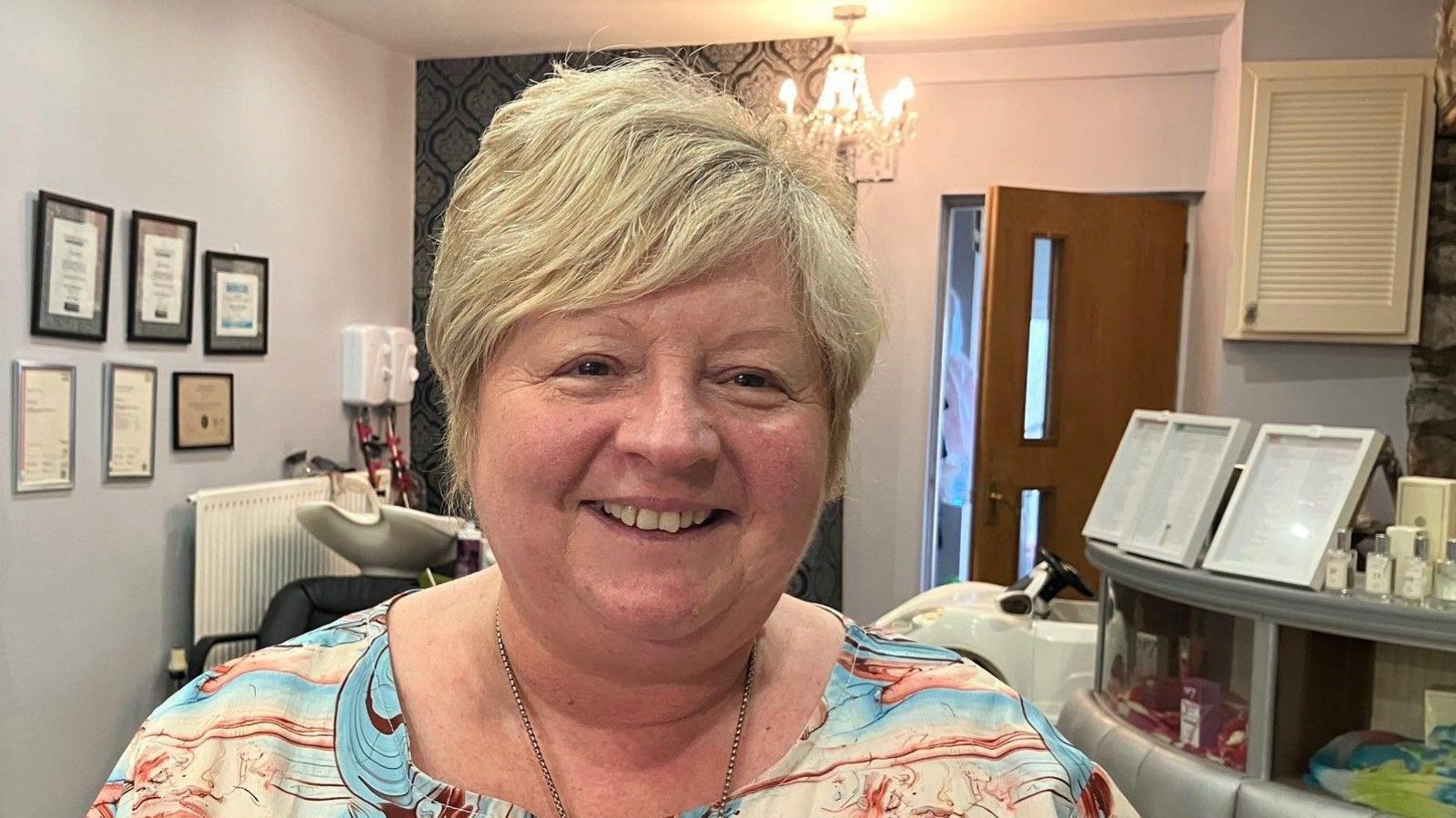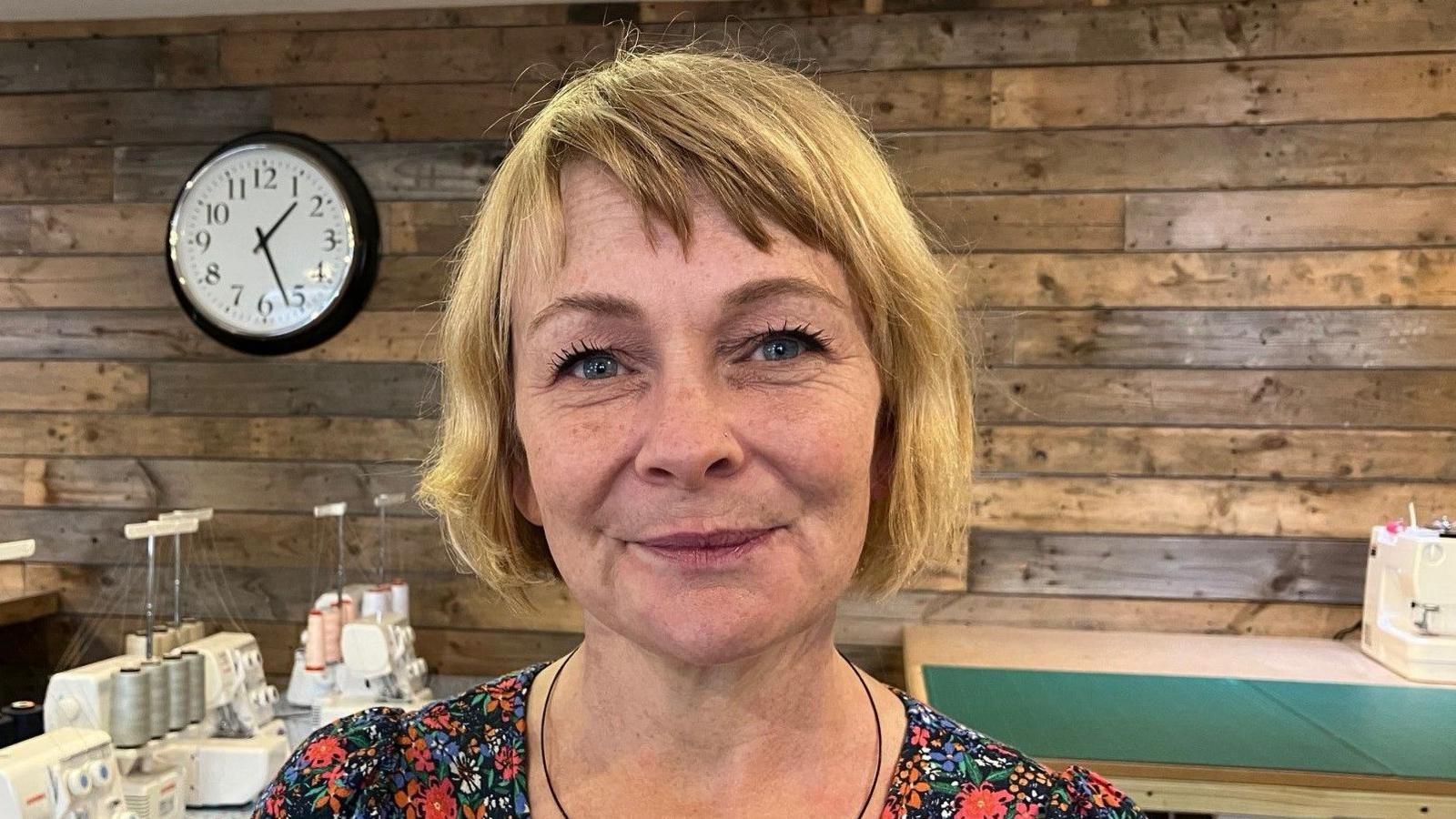Businesses and customers still battling high prices

Amarjit Kaur Kingra has run The Old Temp Fish Bar in Ystradgynlais for 10 years
- Published
Cost of living pressures remain a struggle for many small business owners and their customers, as both groups look to the general election in the hope for change.
Price rises have slowed considerably from their peak in 2022, but the cost of food is much higher now than it was three years ago.
The average cost of sugar has risen by nearly three quarters since April 2021 and prices for potatoes and milk are up by nearly 50%, according to the Office for National Statistics (ONS).
Higher food and energy prices, as well as an increase in the National Living wage, has left Amarjit Kaur Kingra having to pass the additional costs on to her customers at her fish and chip shop in the village of Ystradgynlais, Powys.
How much have food prices have gone up?
"People always comment that prices have gone up, but the community here are understanding," said Mrs Kingra, who is known to her customers as Ams.
"We explain wages have gone up or prices have gone up, but they are aware of that even before we’ve had to say things."
Ystradgynlais is in the closely fought constituency of Brecon, Radnor and Cwm Tawe which the Conservatives are defending against challenges from both the Liberal Democrats and Labour.

Grace and her Mum Becky
Along with the NHS, which is the responsibility of the Welsh Labour government, the cost of living is one of the big issues that will influence the vote of Becky who was shopping in the local garden centre with her teenage daughter Grace.
Becky said that despite being relatively comfortable, her family’s budget is not stretching as far as she would like.
"I’m still not sure who to vote for, but I think it’s really important to use that vote, and for voices to be heard, because things need to change," she said.
The price of food has rocketed in the last three years, much of it driven by international factors like the war in Ukraine.
And though inflation, which measures the rates at which prices rise, has recently fallen back to close to the Bank of England target of 2%, average prices remain high compared with three years ago.

Cheryl has been running Cutting Corner hairdressers for more than 20 years
Hairdresser Cheryl has recently diversified her business Cutting Corner after more than 20 years.
She now shares the premises with beauticians offering manicures and teeth whitening.
Despite price rises slowing down she doesn’t think things are getting any better.
"The pressures are still there," she said.
She’s also had to increase prices for customers.
"We feel bad about it, because our customers are like our friends, but we’ve got to put the extra on in order to stay afloat."

Nicola Ridd-Davies teaches dressmaking in the village
"It’s been really difficult" said Nicola Ridd-Davies who teaches dressmaking skills at The Little Stitchery.
When her contract with her energy supplier ended she faced a "crippling" increase in charges, which she has managed to absorb.
"I didn’t pass on those charges to customers, but I’ve really felt the pinch when it comes to utilities," she said
Ms Ridd-Davies believes cost pressures are "a key issue" for voters in the general election campaign.
Food price rises 'returning to normal'
- Published21 May 2024
How much are prices rising for you? Try our calculator
- Published17 July 2024
What photo ID will you need to vote in the general election?
- Published29 April
The Welsh Conservatives said it would maintain the cap on household energy bills and the UK economy was growing at the fastest rate in the G7.
It said its Conservative-led UK government was "supporting hardworking people" with cuts to National Insurance which put "£700 back into the pocket of the average worker in Wales", as well as increasing the National Living Wage to £11.44 an hour.
Labour said it would provide economic stability to "grow our economy and keep taxes, inflation and mortgages as low as possible".
It added it would deliver a new deal for working people with "a genuine living wage", and set up a publicly owned energy company to cut bills and boost energy security.
The Welsh Liberal Democrats said it wanted "to ensure taxes are finally fair by lifting the burdens that have been placed on low earners" and "repair the broken safety net by reversing Conservative cuts to the welfare system", as well as imposing "a proper one-off windfall tax" on oil and gas companies.
Plaid Cymru said it had a "pledge to end the two-child benefit cap which is keeping thousands of families in poverty" and increase it by £20 a week, as well as growing the economy in Wales by "pushing for the UK to rejoin the EU’s single market and customs union, to begin to reverse the economic harm caused by the Tories' botched Brexit."
The candidates in Brecon, Radnor and Cwm Tawe are:
Conservative - Fay Jones
Labour - Matthew Dorrance
Liberal Democrat - David Chadwick
Plaid Cymru - Emily Durrant-Munro
Reform - Adam Hill
Green Party - Amerjit Kaur-dhaliwal